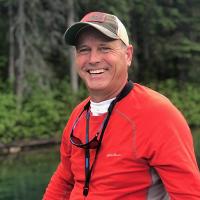
In the Life of: Butterflies East of the Rockies
July 25 @ 10:00 am - 11:00 am PDT
Join Ray Moranz and Steve Armstead, Xerces Society Pollinator Conservation Specialists, to explore the world of butterflies east of the Rockies. This webinar continues to explore the life of butterflies that began in the west and now looks east over the Continental Divide running along the Rockies to the shores of the Atlantic Ocean and Gulf of Mexico. This large extent of the country includes diverse landscapes ranging from alpine peaks, arid grasslands, fertile plains, forests, farms, and coastal wetlands. In all of these landscapes, butterflies can be found and have adapted strategies allowing them to find host plants and complete their life cycle. These butterflies may include those with narrower geographies and depend on more localized and specific habitat conditions, and others more common and widespread. Ray and Steve will provide an overview of the diversity of eastern butterflies, including some iconic species while highlighting some of the fascinating butterflies that have life strategies to survive in specific and challenging habitats. Learn about the threats butterflies must contend with including habitat loss, changing climate conditions and land management practices, and what we can all do to protect them and their habitats.
This webinar will be recorded and available on our YouTube channel. Closed Captioning will be available during this webinar.
Learn more and register today!

Ray Moranz – Pollinator Conservation Specialist, NRCS Partner Biologist, Central Region – Xerces Society
Ray works to conserve pollinators on rangelands in the central U.S., and he also serves as a Partner Biologist to the USDA’s Natural Resources Conservation Service’s (NRCS) Central National Technology Support Center in Fort Worth, TX. He is based at the NRCS Field Office in Stillwater, Oklahoma. One focus of his work is to assist in the planning and implementation of monarch butterfly conservation efforts in the south central U.S.. Ray began studying the effects of fire and grazing on prairie plant and butterfly communities in 2004, and earned his Ph.D. in natural resource ecology and management from Oklahoma State University in 2010. Prior to joining the Xerces Society, he worked for The Nature Conservancy in Florida, the U.S. Fish and Wildlife Service in California, Iowa State University, and Oklahoma State University.

Steve Armstead – Pollinator Conservation Specialist, Nature-Based Climate Solutions, Colorado – Xerces Society
As the Colorado Front Range Pollinator Conservation and Nature-Based Climate Solutions Specialist, Steve partners on efforts to coordinate, manage and build high quality, connected, climate-resilient pollinator habitat in the Colorado Front Range covering the Boulder, Denver and Fort Collins areas. Steve will be working with the City of Boulder on their pollinator conservation and nature-based climate initiatives, while also exploring ways to expand and leverage support for pollinator conservation and climate solution efforts throughout the region.
Steve has extensive experience working in natural lands management, planning, and community engagement after a lengthy career with the City of Boulder’s Open Space program. Steve holds a Master’s Degree in Museum and Field Studies focusing on Entomology from the University of Colorado – Boulder, where he surveyed and established a system to monitored butterflies across local natural areas. He enjoys hiking, paddle boarding, and the many labors associated with taking care of a small horse farm and improving the extent of its pollinator habitat.




